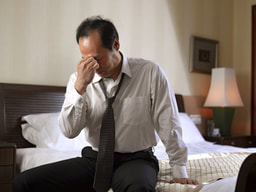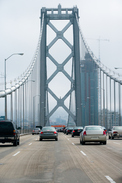Indeed, guests and hotel have special relationship. Guests have no time or expertise to identify dangers while hotel owners have the time and resources to do so. Generally, hotels have a continuous duty to inspect their premises for anticipated dangers, just like landlords of apartment buildings. With respect to common areas and hotel rooms in particular, innkeepers and premises owners are required to perform “reasonably careful” inspections at “reasonable intervals” to learn of dangers not apparent to the eye. Rodenberger v Frederickson (1952) 111 Cal.App.2d 139. In some ways this duty is similar to the obligation that grocery stores have in conducting regular inspections of aisles, maintaining sweeping logs and taking reasonable steps to insure there are no conditions on the floor that would make their customers slip or trip.
However, in a typical hotel injury case involving a non apparent defect (such as broken shower door, slippery floor, etc...), an argument should be made to distinguish this situation from a grocery slip and fall. A guest of a hotel is particularly vulnerable because he/she doesn't have either time or expertise to detect those types of dangers. A guest obviously cannot be expected to inspect a hotel room before checking in. At the same time, hotel owners and staff are in the best position to ensure safety of their premises, due to continuously maintaining premises and having the resources to protect guests from known and possible dangers. This heightened duty to inspect should be emphasize at every stage of the case, including trial, in order to maximize the chances of winning.

 RSS Feed
RSS Feed
